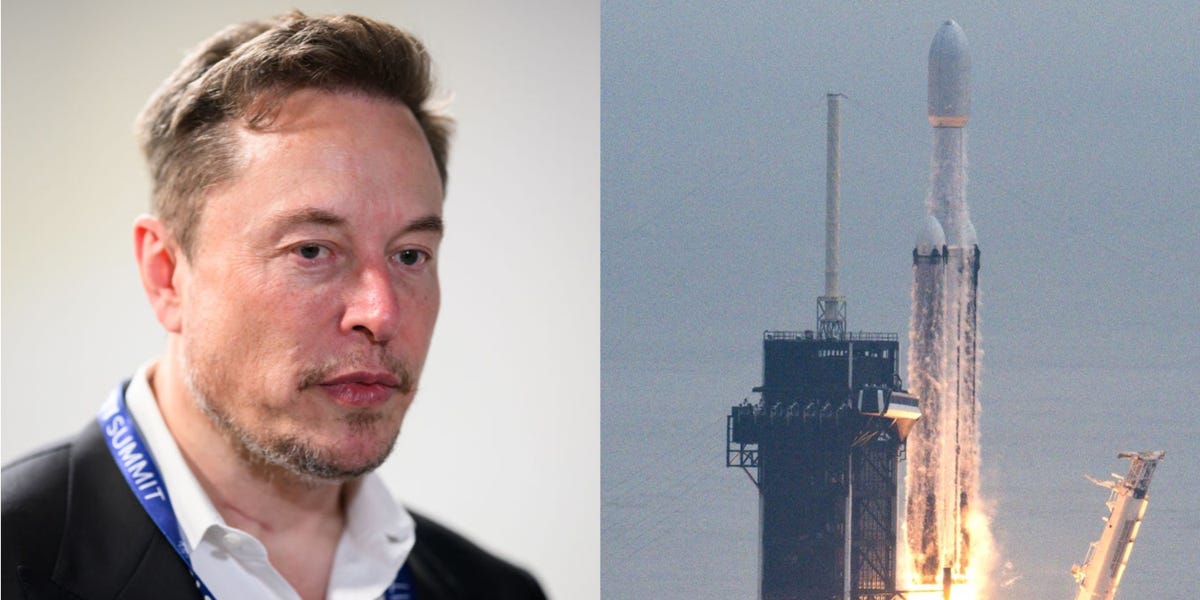- SpaceX workers reportedly put in over 80-hour workweeks in Elon Musk’s race to colonize Mars.
- A Reuters investigation looked at 600 work injuries at SpaceX from 2014 to now.
- Musk has long been known for his “maniacal sense of urgency,” his biographer said.
Some SpaceX workers resorted to taking Adderall to keep up with the pace of work at the company’s launch facility, and others found themselves falling asleep in the bathroom during long workweeks, a recent Reuters investigation found.
Travis Carson, a former SpaceX worker at the company’s facility in Brownsville, Texas, told Reuters some workers took Adderall — a stimulant designed to help people with ADHD improve their focus and concentration levels — without a prescription to keep up with the pace of work. Carson was a welder and later a production supervisor at SpaceX from 2019 to 2022, when he was terminated following an argument with his manager, the publication said.
Four current and former SpaceX workers at the location, including Carson, told the publication that employees would sometimes work over 80 hours a week and some would sleep at the facility to get more work done. Some employees would fall asleep in the bathrooms, the four current and former workers who spoke with Reuters said.
SpaceX welders like Carson, the report said, would also work in tent structures at the launch site, sometimes dealing with temperatures in excess of 100 degrees Fahrenheit while welding rocket machinery. To address the heat issue, workers would receive IV treatments to continue working, Reuters reported.
Elon Musk’s rocket company, which employs about 13,000 people, had at least 600 worker injuries over the course of nine years across its facilities, the publication reported. The number does not represent the full number of injuries at SpaceX because the company has not submitted reports to the Occupational Safety and Health Administration for any of the years it has been in operation, Reuters said. The injury rate at the facilities for the years that were reported exceeded space-industry averages for the same years, the publication said.
In interviews with over 36 people, Reuters wrote that some current and former workers said the injuries pointed to Musk’s breakneck pace for the company. The billionaire has long been pushing for SpaceX to build a rocket allowing humans to one day travel to Mars.
Tom Moline, an ex-SpaceX engineer, told Reuters that he was one of a handful of employees fired after they brought forth complaints about SpaceX’s work environment.
Four current employees told Reuters Musk himself had even contributed to some of the safety concerns at SpaceX by toying with the company’s flamethrower on-site, as well as through his aversion to bright colors that are sometimes used for safety reasons. Three ex-SpaceX supervisors told the publication Musk would have yellow machinery repainted to black or blue and some workers were told not to wear bright-yellow safety vests when the billionaire was on-site.
A spokesperson for SpaceX did not immediately respond to a request for comment ahead of publication. But the company has responded to OSHA inquiries, saying it’s not liable for the worker injuries as the company gives workers safety training, Reuters reported.
Responsible engineers “are ultimately responsible for all aspects of their components and systems,” the company said in a response to one OSHA inquiry, according to Reuters.
Reuters’ report came after some SpaceX employees wrote an open letter last year criticizing Musk’s behavior as a “source of distraction and embarrassment.”
Musk has been known to run his companies with high intensity, sometimes calling for work sprints and even sleeping on the factory floor at Tesla.
His biographer, Walter Isaacson, has said the billionaire has a “maniacal sense of urgency” that could frighten some of his workers — a characteristic that Isaacson said was effective 80% of the time and was “problematic” 20% of the time. Ultimately, the biographer said Musk believed empathy at the expense of the larger mission, like colonizing Mars, was a form of “egotism.”
Do you work for SpaceX or have insight to share? Reach out to the reporter from a nonwork email at [email protected].
Read the full article here





